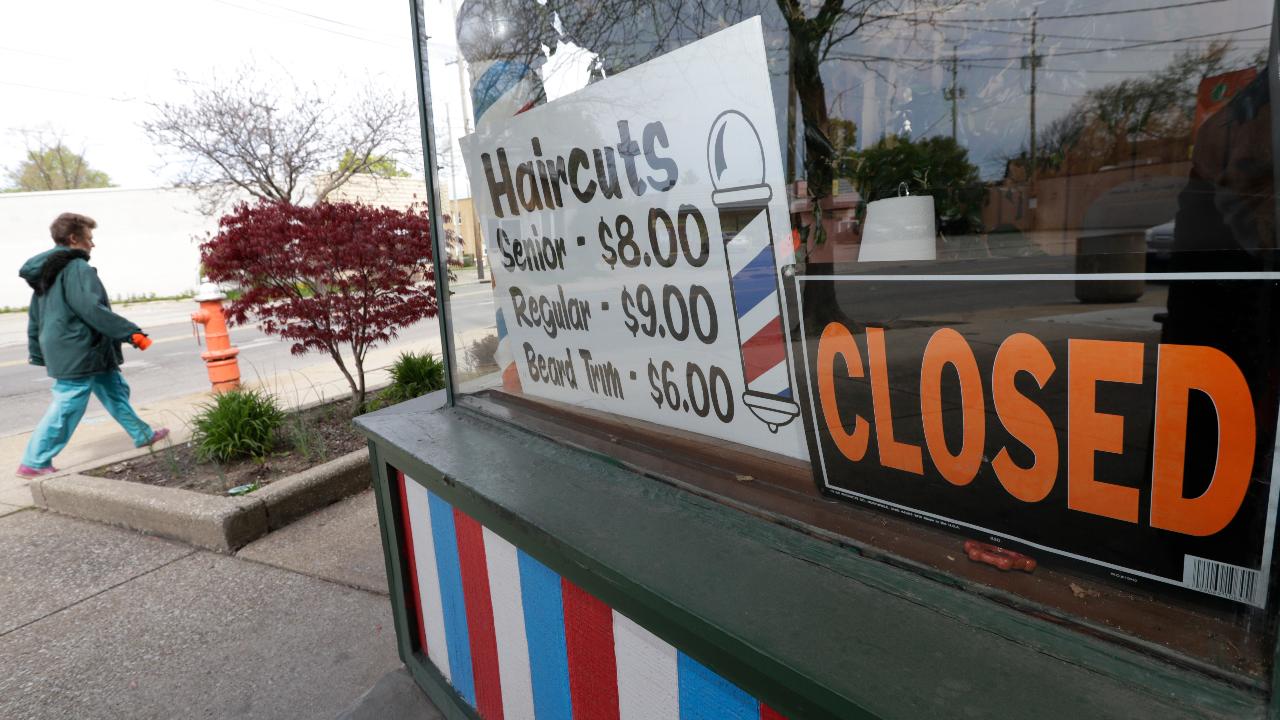Despite PPP aid, some small businesses are choosing to stay closed - here's why
Of the one-third of small businesses that have not yet reopened, about 34 percent said it was because they could not afford to pay their bills or their rent
Get all the latest news on coronavirus and more delivered daily to your inbox. Sign up here.
The federal government set aside nearly $660 billion in aid to help small businesses weather the coronavirus pandemic, but despite the massive rescue program, some owners are choosing to keep their businesses closed.
In the past three months, 31 percent of small- and medium-sized businesses have shuttered their doors as a result of the virus outbreak, according to a new report released Monday morning by Facebook and the Small Business Roundtable.
PPP RECIPIENTS COULD FACE LOAN CHALLENGES - HERE'S WHY
Of the one-third of small businesses that have not yet reopened, about 34 percent said it was because they could not afford to pay their bills or their rent, the report found. Only 45 percent of owners and managers of closed businesses said they plan to rehire the same workers when their businesses reopen.
When it is time to reopen, business owners were unsure how they would pay for it. Nearly half -- 41 percent -- of owners and managers said they intend to use personal savings, while 39 percent said they were unsure where they would get the necessary financing.
SBA RELEASES PPP LOAN FORGIVENESS GUIDANCE
“Despite the 50 percent decline in sales, we still have to pay 100 percent of our fixed costs,” one small business owner said in the report. “This is impossible. Rent was already high. Now it makes up 50 percent of our gross income.”
Under the Paycheck Protection Program, which Congress established as part of the $2.2 trillion CARES Act, businesses with fewer than 500 workers can secure low-interest loans of up to $10 million. If at least 75 percent of the money goes toward maintaining payroll — including salary, health insurance, leave and severance pay — within eight weeks, the federal government will forgive it.
The remaining 25 percent can be spent on operating costs like rent and utilities, but may not go toward mortgage principal or pre-payments. Money spent on nonqualifying expenses must be repaid at an annual rate of 1 percent within two years. No payments are required during the first six months.
ELITE SCHOOLS THAT TAPPED SMALL BUSINESS FUND SHOULD RETURN AID, MNUCHIN SAYS
“Forgiveness is based on the employer maintaining or quickly rehiring employees and maintaining salary levels,” the Small Business Administration said on its website. “Forgiveness will be reduced if full-time headcount declines, or if salaries and wages decrease.”
Plus, with the expanded unemployment benefits included in the economic-relief bill, it’s become more lucrative for some workers to remain unemployed than to return to their job. The ensuing problem means that borrowers could be saddled with huge debt loads if they’re unable to spend the money as dictated for it to become a grant. Only a handful of states have allowed businesses to reopen.
But some small business owners have said the loan restrictions may hurt tens of thousands of borrowers who cannot meet the 75 percent threshold.
"SBA’s requirements could result in an unintended burden to the borrowers," the government watchdog responsible for policing the Small Business Administration wrote in a recent report.
TREASURY SAYS SOME PUBLIC COMPANIES NOT ELIGIBLE FOR SMALL-BUSINESS LOANS AFTER BACKLASH
The author of the report, SBA Inspector General Hannibal “Mike” Ware, recommended the agency “evaluate the potential negative impact to borrowers regarding the specified percentage of loan proceeds eligible for forgiveness.”
"It may be important to consider that many small businesses have more operational expenses than employee expenses," he said.
Advocacy groups have pushed for the 75 percent requirement to either be changed or eliminated entirely.
“There was no ratio placed on allowable forgivable expenses by Congress in the legislation, and the 75-25 rule must be lifted,” Karen Kerrigan, president and CEO of the Small Business & Entrepreneurship Council, said.




















